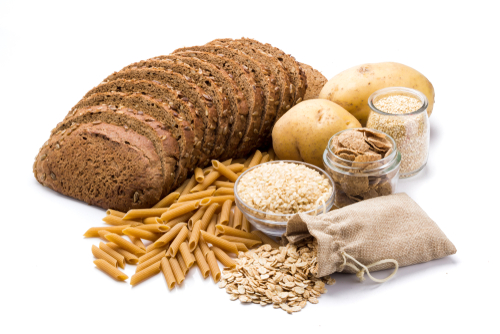While the marathon season is already underway is less than 20 Days until over 50,000 runners meet in Greenwich to participate in the iconic London Marathon.
In front of the Buckingham Palace on April 27, the 26.2 mile route requires a careful training plan, whether the first or tenth marathon.
Help you prepare for the day, Kerry Beeson, a nutritionist at PREP kitchen and Dr. Hana Patel, Resident Sleeping Specialist at Time4sleep– Share advice on how your nutrition and sleep can affect performance.
- Adapt your diet to fuel, refueling and repair
Kerry, a nutritionist In the prep kitchen, you advise you to eat four main councils while the marathon practices:
Complex carbohydrates
“Complex carbohydrates are the best because they are metabolized more slowly than simple sugars, providing continuous energy without causing blood glucose spike and troughs. Depending on how often and how hard you practice, reach about 5-8 g of carbohydrates / kg of body weight per day. “
Protein
“Protein is essential for muscle growth and repair and enzymes that help to absorb nutrients. It also helps keep you feel full. ”
Healthy fat

“Healthy fats in foods, such as oily fish, olive oil and avocado, are also great to include as part of the runner’s nutrition arsenal-they are anti-inflammatory and can provide continuous secondary energy source, especially if long distances. “
Fruits and vegetables
“Fruits and vegetables provide vitamins and minerals for immune system, effective metabolism and general well -being. Eat brightly colored fruits and vegetables such as berries or beets – these are filled with antioxidants that have been shown to improve performance and aerobic capacity.”
- Avoid these three general foods during education
It is equally important that you are considering leaving certain foods that could prevent your progress – Kerry advises to avoid the following food groups:
Processed foods
Kerry says: “The diet should be very effective in training – every meal has to be calculated. The food treated is typically full of empty calories, added sugar and fat, and has little nutrients that your body needs.”
Fatty foods
“Avoid fried or greasy food-melting it takes a long time and can make you feel slow.”
High -fiber
“Beans and legumes or crucifixions are very healthy, but they can be difficult to digest and may cause swelling, so avoid before training or big competition.”
- Know when to eat around your training
To get the most out of every exercise, consider interacting your fitness schedule with it and when you eat.
Kerry says “If you like early in the morning, eat well the night before. However, longer runs are always best to do this as a fuel-balanced meal 2-3 hours earlier, then a heavy carbohydrate heavy snack about an hour before.”
- Optimal marathon sleeping routine
Dr. Patel, a resident sleeping expert at Time4sleepsays: “Sleep has an important part of the athlete’s recovery process and their performance, which is one of the reasons why monitoring of elite athletes has increased. Participants have a strong long -distance run, such as a marathon, participants are increasingly important to ensure that they have optimal sleep.
“Sleeping has a positive effect on performance due to the restoration of slow wave sleep. This allows for recovery from previous revival and fatigue and ensures that the muscles are well rested and ready for stressful exertion. Sleep also has a positive effect on the brain, ensuring that you are completely alert and rest mentally ahead of your competition.
“As a marathon is practicing, it is advisable not to exercise intense exercise too close to bedtime to avoid stimulation and give your body time to relax. NHS recommends finishing two or three hours before going to bed to give your body enough to ventilate.
I recommend the following steps to ensure optimal sleep to make sure you get enough sleep during the training period and on the eve of the marathon:
- Make sure you have a good sleep routineand create good sleep hygiene. Go to bed and wake up at the same time every day as far as possible
- Relax, Relax and try meditation before going to bed to help you sleep. Mindfulness and conscious activities can help you with the right way of thinking good night
- Create the right sleeping environmentMake sure your bedroom is not too hot or cold or too bright.
- Make sure your sleep arrangements meet your needsChoose a mattress and pillows that give you enough support as you sleep and make sure you choose the right bed size to allow you to sleep comfortably
- Don’t force sleep. If you do not get drifted naturally, try a quick reset and do a relaxing activity to try to calm your mind
The five -star Boutique Hotel offers the final returning to marathon runners







